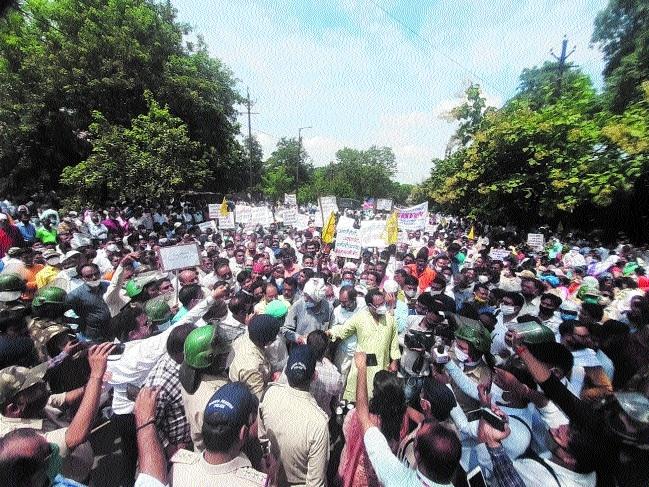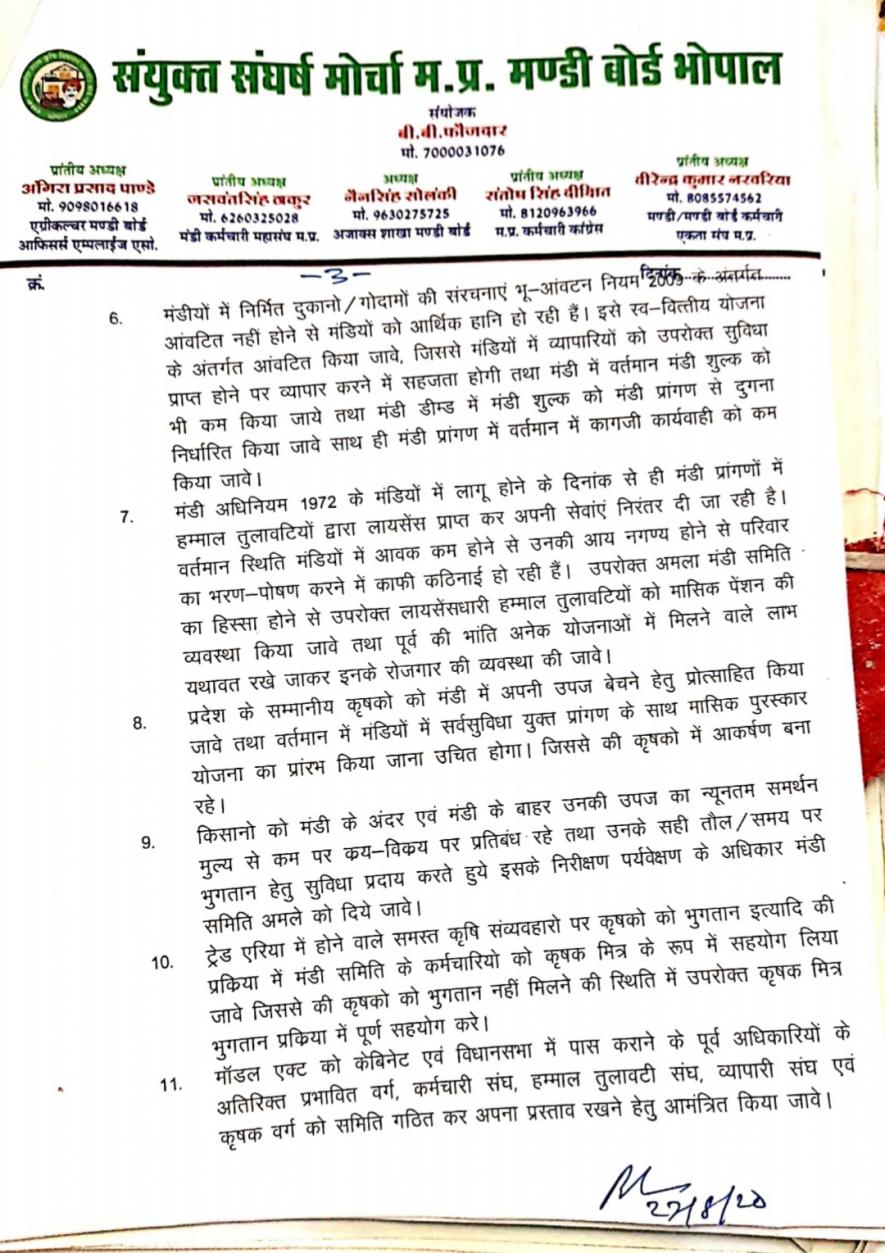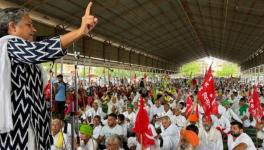Madhya Pradesh: Govt Bill That Intends to Open Private Mandis, Faces Backlash

Bhopal: The attempt being made to open parallel, private mandis by the Bharatiya Janata Party (BJP) government in Madhya Pradesh is facing a backlash from Mandi Board officials and farmers.
Demanding withdrawal of the newly-proposed Model Mandi Act, 2020, the state Mandi Board officials not only held a massive protest in Bhopal on September 3, but have also been on indefinite strike since. The city police used batons to disperse the protesters on Thursday, booking nearly 600 people under various charges.
Taking a cue from Union Government’s agriculture reform ordinances, the state government proposed Model Mandi Act, 2020, on June 5. It formed a committee of five officials to frame laws. The government is likely to pass the Bill in the upcoming session of the Assembly from September 21.
The Bill allows open parallel, private mandis, where anyone can buy the farmers’ crop without a Mandi Board license and they will not be taxed. More importantly, the buyers are not required to comply with the state government’s MSP, claimed the State Mandi Board Officers Association.
“In the private mandis, the state government is giving all kinds of relaxations from tax waiver to end license system to purchase grains without fixing minimum support price (MSP). While on the other side, the government imposed everything from tax, licences to MSP in Government mandis,” said Angira Pandey, Regional Head of the Madhya Pradesh Agriculture Mandi Board Officers Association.
Pandey claimed that according to the Madhya Pradesh Krishi Upaj Mandi Adhiniyam, 1972, the state government fixes the MSP of the crop. Only after that officials of the Mandi Board start bidding on the crops in front of farmers and licensed buyers.

After a successful deal, the buyer pays 1.7% tax on the total purchase. Of this, 1% goes to the Mandi Board and the remaining 0.7% goes to the state government. The board keeps a record of all the sales and purchases and if any buyer does not pay the full amount to the farmer within a given time-frame, Mandi Board officials urge them to clear their dues or face cancellation of licence.
"Why would anyone come to the government mandi if one need not to pay taxes and comply with the other rules?" asked Pandey, adding that in the name of reform, the government is trying to shut government mandis and get rid of MSP.
The State has 269 mandis and 298 sub-mandis, divided into seven divisions. The board, which was established under the Madhya Pradesh Krishi Upaj Mandi Adhiniyam, 1972, has about 6,500 officials including 1,500 women, 2,500 pensioners and nearly 9,000 registered labourers.
The closure of mandis across the State since September 3 is resulting in a loss of nearly Rs 35 crore to Rs 40 crore a day. The loss will be greater in the upcoming weeks when new crops such as corn, moong, soya, cotton and the like hit the market, the association claimed.
Board officials have also written a letter to Chief Minister Shivraj Singh Chouhan about their grievances over the Bill on June 28, threatening to protest if their demands were not fulfilled.
Farmer leader Shivkumar Shukla has supported the strike and demanded a withdrawal of the newly-proposed model, saying it is against farmers’ welfare.
“In 2006, the Bihar Government closed the government mandis and it led to the end of MSP. Today, Bihar’s farmers are forced to sell their crops at low rates because they have no other option, and the MP government’s intentions are the same,” said Shukla.
“If the government didn’t listen to our demands then farmers and Mandi Board officials will picket the assembly,” he added.
B.B. Faujdar, the convenor of Sanyukt Sangharsh Morcha Madhya Pradesh Mandi Board, said that their demands were simple: either withdraw the new model or make changes to it.
“The Mandi Board officials and pensioners who drew a salary from the taxes given by the buyers should be compensated by the Agriculture Department. Impose a tax on private mandis similar to that on government ones. Fix the MSP of a crop and form a watchdog agency which can keep any eye on the business of the private mandis. If not, we will launch aggressive protests against the government,” said Faujdar.
Backing the Mandi officials’ demands, former Madhya Pradesh Chief Minister Digvijaya Singh and Member of Parliament from Chhindwara, Nakul Nath, demanded withdrawal of the Bill.
On June 6, 2020, Singh dashed off a letter to Chouhan and urged him to review the decision, caliming that the move would drive farmers and officials to starvation.
Get the latest reports & analysis with people's perspective on Protests, movements & deep analytical videos, discussions of the current affairs in your Telegram app. Subscribe to NewsClick's Telegram channel & get Real-Time updates on stories, as they get published on our website.
























